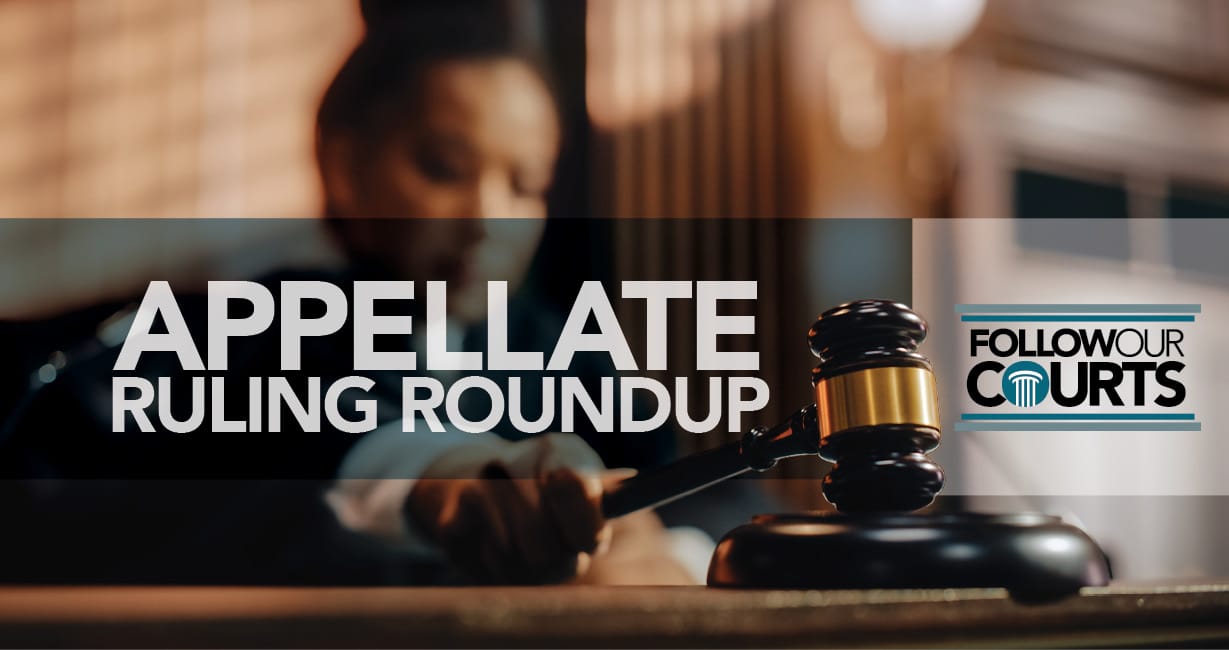- Criminal: Riverside Superior Judge Stephen Gallon’s conviction affirmed in case People v. Jimenez (RIF1902202/D080923)
- Anthony Jimenez attacked his stepfather after his brother refused to lend him $40. Jimenez, who the appellate ruling indicated seemed to have a mental illness, partially scalped his stepfather, Dale B., cut his face, and tied him up with duct tape. Dale broke loose and told him they would “go get your money.” Dale drove to an ATM five miles away while Jimenez held a knife to his throat. On the way back to their house, Jimenez appeared to not know what happened. Dale left Jimenez at their house while he drove to the hospital, but Jimenez cut him off twice
Subscribe now for free for access to all of Follow Our Courts’ content. Subscribe
© 2025 Follow Our Courts. | Privacy Policy | Brought to you by McCune Law Group, McCune Wright Arevalo Vercoski Kusel Weck Brandt, APC








